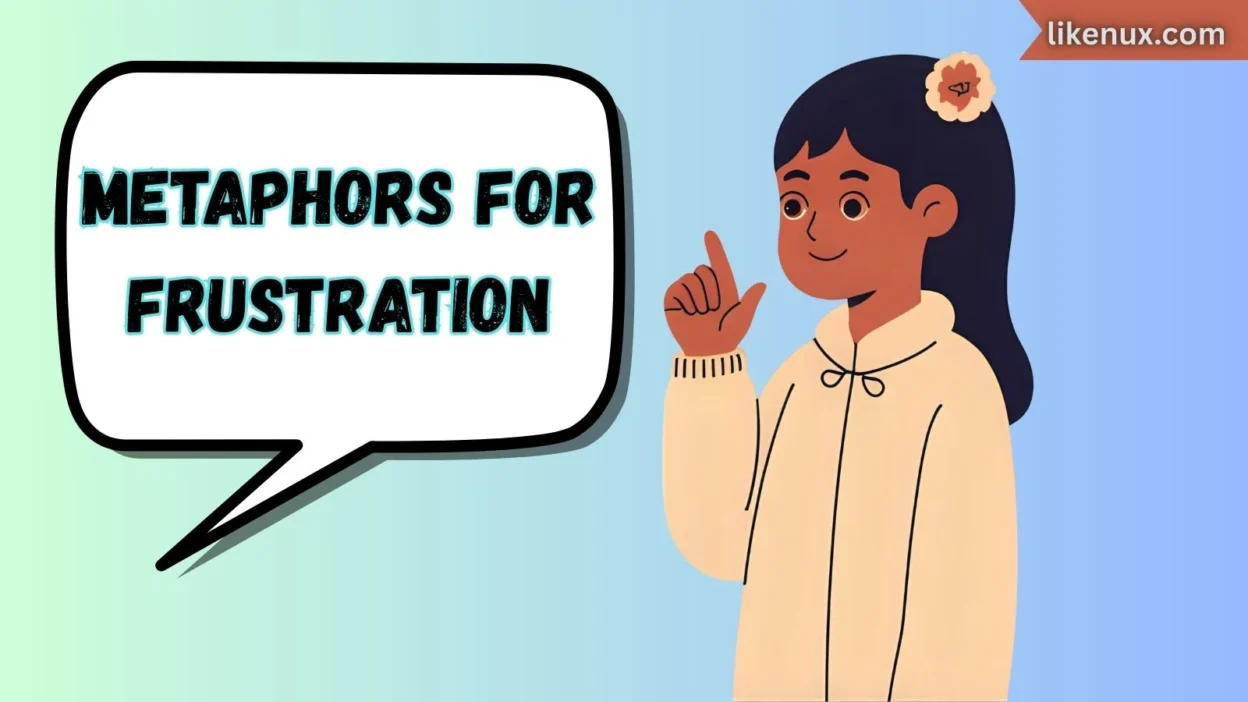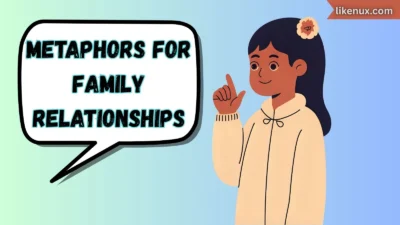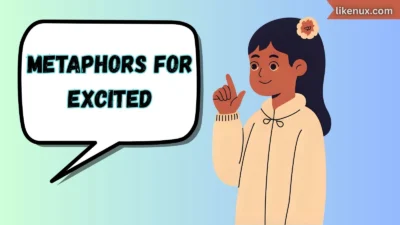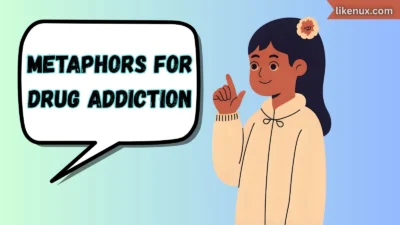Frustration is something we all experience—it’s that mix of tension, impatience, and helplessness when things don’t go the way we expect. Sometimes, finding the right words to describe frustration can make us feel lighter, understood, and even connected to others who share the same struggles. Metaphors for Frustration.
In this article, I’ll share 25 powerful metaphors for frustration. Each one will include its meaning, how it can be used in a sentence, the best context to use it, and some alternative ways to say it. I’ve also added a touch of personal reflection because I’ve often leaned on these expressions myself when life felt overwhelming.
Using these metaphors will not only help you communicate your feelings better but also give you more empathy and creativity in everyday conversations, whether in school, work, or personal life.
1. Frustration is like a boiling kettle
Meaning: Pressure building until it bursts.
Sentence: My mind feels like a boiling kettle, ready to whistle with frustration.
Best use: When stress has been building up over time.
Other ways to say: Ready to explode, under pressure, on edge.
Read More: Metaphors for Grass
2. Frustration is a tangled knot
Meaning: Confusion that seems impossible to undo.
Sentence: My thoughts are a tangled knot whenever I’m stuck on a problem.
Best use: When dealing with complicated issues.
Other ways to say: Mixed up, stuck, complicated mess.
3. Frustration is a storm in the chest
Meaning: Strong, uncontrollable emotions inside.
Sentence: I carry a storm in my chest when things don’t go right.
Best use: When emotions are overwhelming.
Other ways to say: Inner turmoil, emotional storm, restless heart.
4. Frustration is quicksand
Meaning: The harder you try, the worse it gets.
Sentence: Arguing about this feels like quicksand—the more I struggle, the deeper I sink.
Best use: When effort only increases problems.
Other ways to say: Vicious cycle, downward spiral, endless struggle.
5. Frustration is a jammed door
Meaning: Wanting to move forward but being stuck.
Sentence: It’s like standing at a jammed door—I know where I want to go, but I can’t get through.
Best use: When blocked from opportunities.
Other ways to say: Stuck point, closed path, locked situation.
6. Frustration is heavy chains
Meaning: Feeling weighed down by struggles.
Sentence: Carrying this frustration feels like dragging heavy chains.
Best use: When stress feels exhausting.
Other ways to say: Emotional burden, dragging weight, tied down.
7. Frustration is a traffic jam in the brain
Meaning: Thoughts are blocked and unable to move.
Sentence: My brain is a traffic jam of ideas, all stuck and honking at once.
Best use: When overthinking or mentally blocked.
Other ways to say: Mental block, cluttered thoughts, overwhelmed mind.
8. Frustration is a leaky faucet
Meaning: Small irritations that never stop.
Sentence: This constant waiting is like a leaky faucet—drip by drip, it to exasperate
Best use: Annoyances that slowly build up.
Other ways to say: Constant nag, ongoing irritation, steady drip of problems.
9. Frustration is running in circles
Meaning: Working hard but getting nowhere.
Sentence: I feel like I’m running in circles with no way out.
Best use: When efforts feel wasted.
Other ways to say: Going nowhere, stuck in a loop, endless cycle.
10. Frustration is a locked treasure chest
Meaning: The answer is close but out of reach.
Sentence: It’s like staring at a locked treasure chest, knowing the solution is inside but I can’t open it.
Best use: When you almost understand but can’t fully solve something.
Other ways to say: Just out of reach, close but locked, hidden solution.
11. Frustration is a buzzing fly
Meaning: An irritating distraction that won’t go away.
Sentence: That constant noise feels like a buzzing fly around my head.
Best use: When something small but constant disturbs you.
Other ways to say: Persistent irritation, annoying presence, nagging problem.
12. Frustration is a broken compass
Meaning: Not knowing what direction to take.
Sentence: Without answers, I feel like a broken compass spinning aimlessly.
Best use: When uncertain and directionless.
Other ways to say: Lost, no guidance, confused path.
13. Frustration is a storm cloud overhead
Meaning: A dark, heavy mood following you.
Sentence: Frustration is my storm cloud that refuses to pass.
Best use: When frustration feels unavoidable.
Other ways to say: Dark mood, heavy feeling, gloomy presence.
14. Frustration is a caged bird
Meaning: Wanting freedom but feeling trapped.
Sentence: Like a caged bird, I want to fly, but frustration keeps me locked in.
Best use: When limited by restrictions.
Other ways to say: Trapped, confined, held back.
15. Frustration is a ticking time bomb
Meaning: Anger or stress building up before an explosion.
Sentence: With so many delays, I feel like a ticking time bomb of frustration.
Best use: When anger is about to burst.
Other ways to say: About to blow up, explosive feelings, breaking point.
16. Frustration is a puzzle with missing pieces
Meaning: Something incomplete and unsolvable.
Sentence: Life feels like a puzzle with missing pieces when I can’t find clarity.
Best use: When things don’t make sense.
Other ways to say: Unfinished, incomplete, unsolvable.
17. Frustration is static on the radio
Meaning: Noisy interference preventing clarity.
Sentence: Trying to focus feels like listening to static on the radio.
Best use: When distractions overwhelm focus.
Other ways to say: Mental noise, unclear signals, interference.
18. Frustration is climbing a greased pole
Meaning: The harder you try, the more you slip.
Sentence: Solving this feels like climbing a greased pole—impossible to get a grip.
Best use: When repeated attempts fail.
Other ways to say: Slippery struggle, futile climb, endless effort.
19. Frustration is a locked cage of thoughts
Meaning: Stuck in your own mind.
Sentence: I feel trapped in a locked cage of thoughts I can’t escape.
Best use: When overthinking or trapped in worry.
Other ways to say: Mental prison, trapped mind, enclosed thoughts.
20. Frustration is a wildfire
Meaning: Spreading quickly and hard to control.
Sentence: Once it starts, frustration spreads like a wildfire inside me.
Best use: When emotions escalate fast.
Other ways to say: Burning anger, uncontrollable emotions, spreading tension.
21. Frustration is an unfinished story
Meaning: Left without closure.
Sentence: This argument feels like an unfinished story with no ending.
Best use: When things are unresolved.
Other ways to say: Incomplete ending, left hanging, unfinished business.
22. Frustration is carrying a backpack of rocks
Meaning: Heavy and tiring emotional weight.
Sentence: Living with constant stress feels like carrying a backpack of rocks.
Best use: When frustration feels exhausting.
Other ways to say: Burdensome, draining, heavy load.
23. Frustration is a maze with no exit
Meaning: Feeling trapped in endless confusion.
Sentence: This problem is a maze with no exit, and I’m stuck inside.
Best use: When solutions seem impossible.
Other ways to say: Endless loop, no way out, trapped confusion.
24. Frustration is waves crashing on rocks
Meaning: Repeated effort with no result.
Sentence: My attempts are like waves crashing on rocks—loud, strong, but useless.
Best use: When hard work brings no progress.
Other ways to say: Futile effort, wasted energy, unchanging situation.
25. Frustration is a computer that keeps freezing
Meaning: Constant stops that prevent progress.
Sentence: My patience feels like a computer that keeps freezing—stuck and unresponsive.
Best use: When things constantly halt progress.
Other ways to say: Unresponsive, stuck point, frozen state.
FAQs on Frustration Metaphors
1. Why use metaphors to describe frustration?
Because they give vivid, relatable imagery that helps express emotions clearly.
2. Can metaphors help manage frustration?
Yes, putting feelings into words can make them feel less overwhelming.
3. Which metaphor is best for daily annoyances?
“The leaky faucet” works well for small, ongoing irritations.
4. What metaphor works for big life challenges?
“The maze with no exit” or “heavy chains” often fit major struggles.
5. Are these metaphors suitable for professional writing?
Absolutely—when used carefully, they add clarity and empathy to communication.
Conclusion
Frustration is a universal emotion, and sometimes it feels too heavy to keep inside. By using creative metaphors, you not only find healthier ways to express yourself but also help others understand what you’re going through.
I’ve personally found that saying “I feel like a boiling kettle” is more powerful than simply saying “I’m frustrated.” It paints a picture, invites empathy, and makes the emotion easier to share.
Next time frustration visits you, try one of these metaphors—you might discover that words themselves can be a release.

Daniel Matthew is a passionate visionary who believes in creativity, purpose, and innovation. With a focus on growth and authenticity, he turns every idea into meaningful impact.



